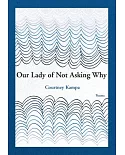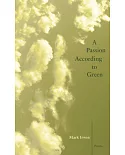Mercury was poised to tell the whole story When he saw that all of the eyes had closed. He stopped speaking and deepened Argus' slumber By waving his wand over those languid orbs. And then he
brought his sickled sword down On that nodding head where it joined the neck And sent it spattering down the steep rocks. Now you lie low, Argus, and all your lights are out, Those hundred eyes
mastered by one dark night. (1.766-74)
Ovid's Metamorphoses gains its ideal twenty-first-century herald in Stanley Lombardo's bracing translation of a wellspring of Western art and literature that is too often treated, even by
poets, as a mere vehicle for the scores of myths it recasts and transmits rather than as a unified work of art with epic-scale ambitions of its own.
Such misconceptions are unlikely to survive a reading of Lombardo's rendering, which vividly mirrors the brutality, sadness, comedy, irony, tenderness, and eeriness of Ovid's vast world as well
as the poem's effortless pacing. Under Lombardo's spell, neither Argus nor anyone else need fear nodding off.
The translation is accompanied by an exhilarating Introduction by W. R. Johnson that unweaves and reweaves many of the poem's most important themes while showing how the poet achieves some of
his most brilliant effects.





















